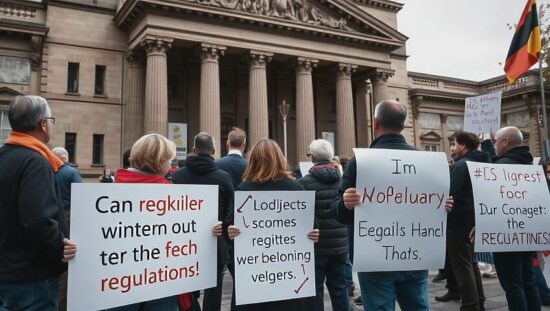Economic ministers from the German states of Baden-Württemberg and Bavaria have voiced strong reservations regarding proposed European Union regulations potentially mandating fixed quotas for electric vehicles within company and rental fleets In a joint letter to European Commission President Ursula von der Leyen, reported by the “Frankfurter Allgemeine Zeitung”, the ministers characterize the contemplated measures as a misstep in economic policy
The officials argue that the proposed quotas are unrealistic, counterproductive and financially unsustainable for many fleet operators They emphasize the potential for significant economic strain on German automotive manufacturers, potentially jeopardizing their competitiveness on a global scale
The concerns stem from a directive issued by von der Leyen in December, tasking Transport Commissioner Apostolos Tzitzikostas with developing legislation for “clean company fleets” by the end of 2025 Current consultations are underway regarding the specifics of this potential law, which could require rental companies, leasing firms and large fleet operators to maintain a specified percentage of electric vehicles within their inventories
Baden-Württemberg and Bavaria contend that, given the intense global competition, further prohibitions and mandates are not the appropriate course of action to reverse the downturn in the European automotive industry and restore its international competitiveness The ministers highlight the challenges faced by automotive manufacturers and suppliers in their respective states, noting that around one million workers in southern Germany are directly or indirectly reliant on the automotive sector Potential job losses within manufacturing, supply chains and associated industries are a key concern
The ministers are explicitly opposing a mandatory transition to electric vehicles for company and rental fleets, characterizing the discussion around a near 100% electric vehicle quota by 2030 as a surprising and substantial state intervention in the market They suggest that such a blanket quota targeting battery electric vehicles would be inappropriate





